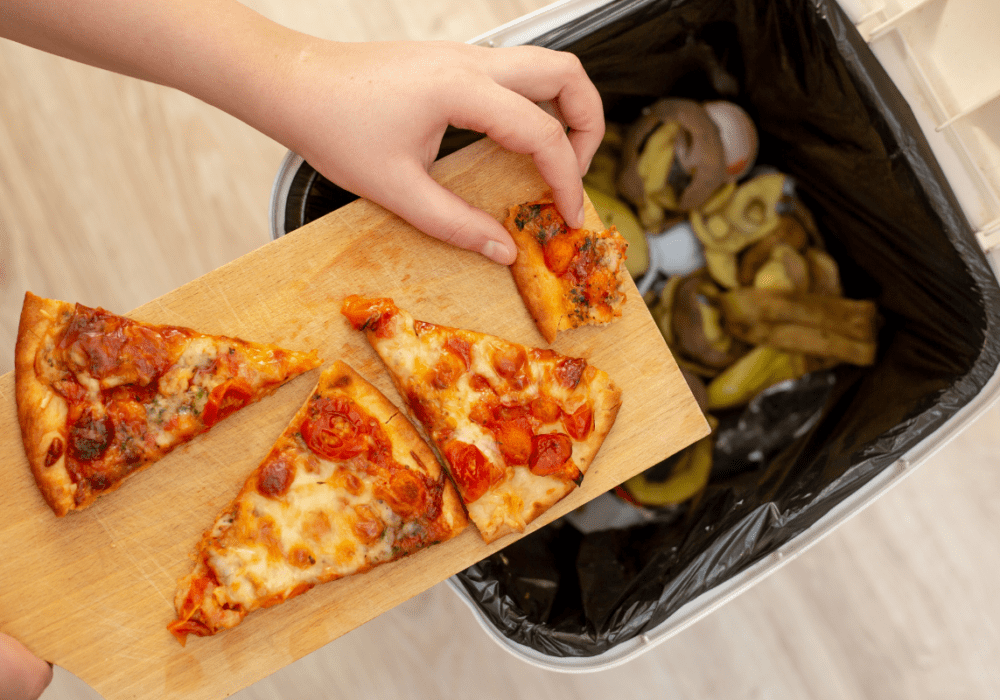
A finger on the pulse of waste management
Industry engagement is an essential part of what Whitespace does. Attending recycling and sustainability events is critical to making sure we fully understand the factors that are driving the waste management industry, and the challenges that face our customers.
As part of our engagement program, we recently attended the National Food Waste Conference organised by LARAC (Local Authority Recycling Advisory Committee) which took place on the 7 March 2024.
One of the key topics around which the conference gravitated was the UK government legislation which mandates that food waste must be collected for free on a weekly basis by March 2026.
The current situation across the devolved nations of the UK is a bit like a proverbial patchwork quilt:
- Many councils already collect food waste on a weekly basis
- Some collect but need to adjust the frequency to a weekly schedule
- Others need to roll out weekly food collection completely from scratch
There are a number of ways that Whitespace can assist LAs to align their food waste collection operations with the new legislation.
Changing behaviour around contamination and non-presentation
For those that already collect food waste there are many challenges. Two main ones include:
- Contamination levels – food waste mixed with non-food waste – typically packaging
- Lack of presentation – bins not put out on collection day
Whitespace in-cab technology allows crews to log contamination and non-presentation information for each property. This granular level of data helps to identify rounds, streets and individual properties that can be targeted for improvement.
In many cases, contamination or presentation issues are related to information and communication. Some residents are simply not aware of the problem contamination causes and simply require the correct information. Presentation issues may simply result from a lack of communication, simply not knowing the correct day that food waste, or any other waste stream, is collected.
The Whitespace Resident App is an ideal conduit, providing a means for targeted information sharing and direct communication with residents to help drive behavioural change and more environmentally responsible attitudes.
One issue that compounds contamination and presentation problems is collection of food waste from blocks of flats. A good way of improving the quality and quantity of materials collected from flats is through the provision of communal bins and by focusing on driving behavioural change on sustainability issues, as can be seen in the case of how we assisted Fife council.
Another example of where Whitespace partners to help deliver efficient and effective food waste collection services is Rushmoor Borough Council. Both of these cases demonstrate the value of the Resident App for information sharing and communication.
Modifying existing food waste collections
For those that need to migrate to a weekly collection schedule, Whitespace’s interactive map functionality vastly simplifies the process of making changes to rounds, and the process of moving schedules around to accommodate weekly waste food collection. With all collections managed within the software, rounds can be optimised, reducing fuel costs and generally uplifting efficiency.
Implementing food waste collections from scratch
Whitespace has some excellent ways to help councils simplify projects for implementing weekly food waste collections from a standing start. Primarily, there is a need for councils to provide and load collection data for every property within each district and the associated round information for frequency and collection days.
There are two main ways we help LAs with onboarding and data management, helping to simplify migration to Whitespace:
- Firstly, our professional services team assists with service introduction or amendment, providing expert personalised support to help new customers move over
- Secondly, our data loading tool is really useful for making mass changes or introducing new services
RFID is an established technology that can also be used for creating more efficient and effective food waste services. Whitespace innovation funds have been used to finance in-house R&D into applying RFID for food waste bin presentation logging. This uses RFID tagging to automatically track bins that have not been presented, with the data being harvested from sensors. This does not require any manual input from crews, avoiding any drag on collection rounds.
Central government funding for food waste roll outs
As part of the government’s Simpler Recycling plans, councils in England are being supported financially. A pot of up to £295 million in funding is available to introduce weekly food waste collections by March 2026. Such funding could be used to cover costs such as new food waste caddies, specialist collection vehicles and technology. North East Lincolnshire council has received £1.2 million in such funding.
Learn more and tackle your food waste challenges with Whitespace
With events playing a pivotal role in helping us to monitor the waste management industry, we organise Whitespace Connect, an annual event to bring together our ‘Special Interest Group’, a community of recycling and sustainability professionals composed of the Whitespace team, our delivery partners and customers.
This is primarily for knowledge sharing and building networks to help with the dissemination of best practice and learning from successful projects. Why not participate in the community at the Whitespace Connect First National Forum, 6 June 2024?
Whitespace partners with over 100 local authorities to help deliver efficient high quality environmental services. To find out more about Whitespace Municipal Waste Management solutions, please get in touch by calling us on +44 (0)1483 231 650 or emailing us at info@whitespacews.com
